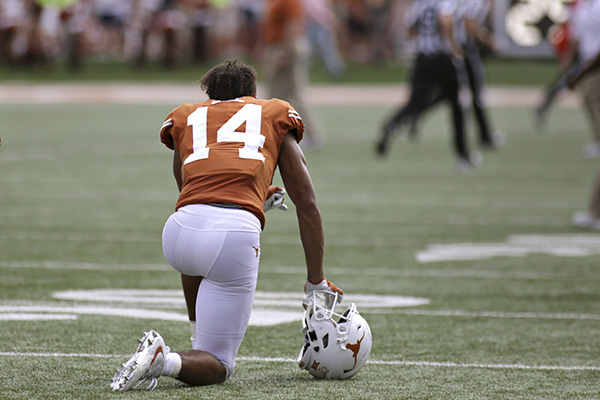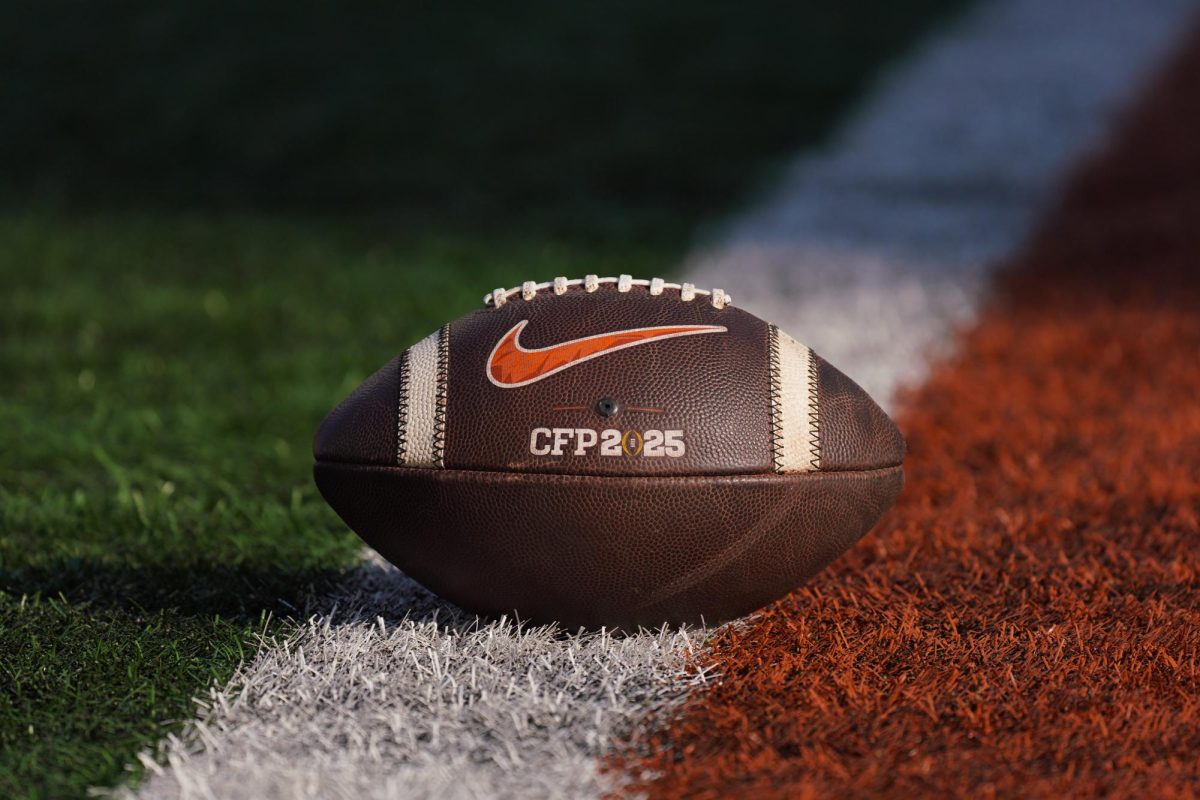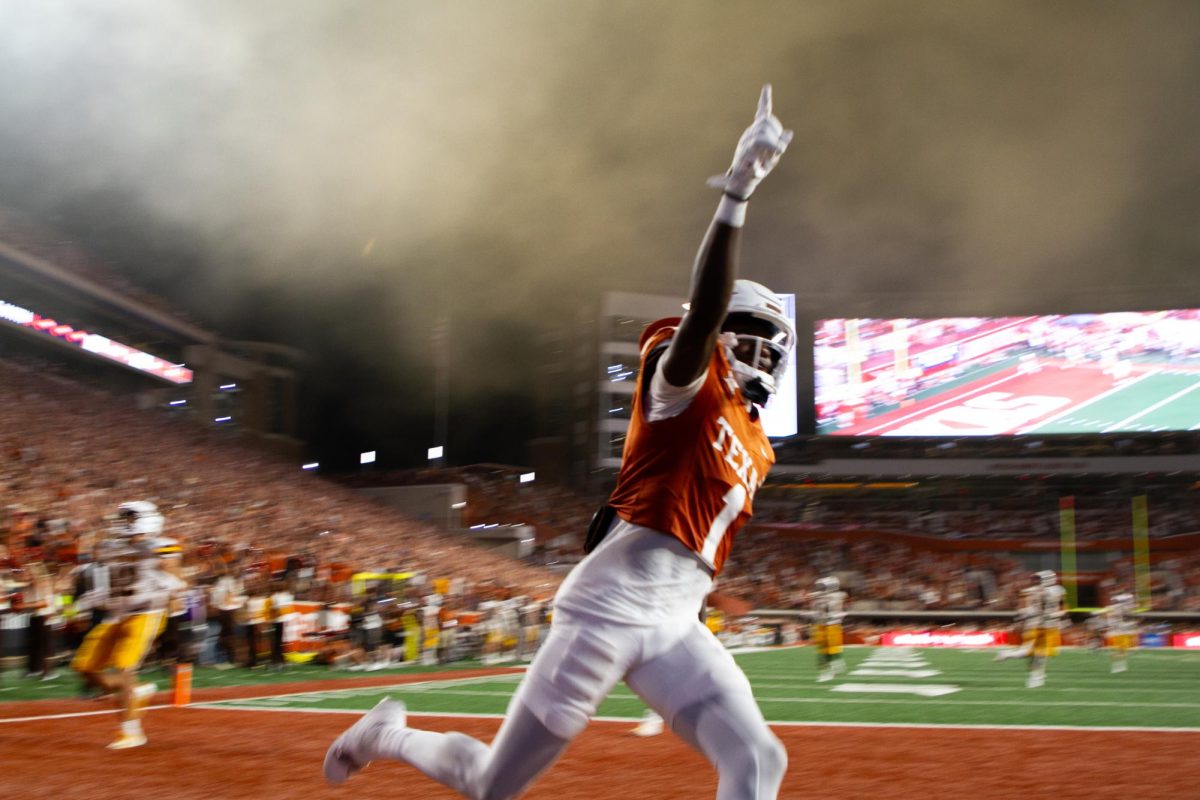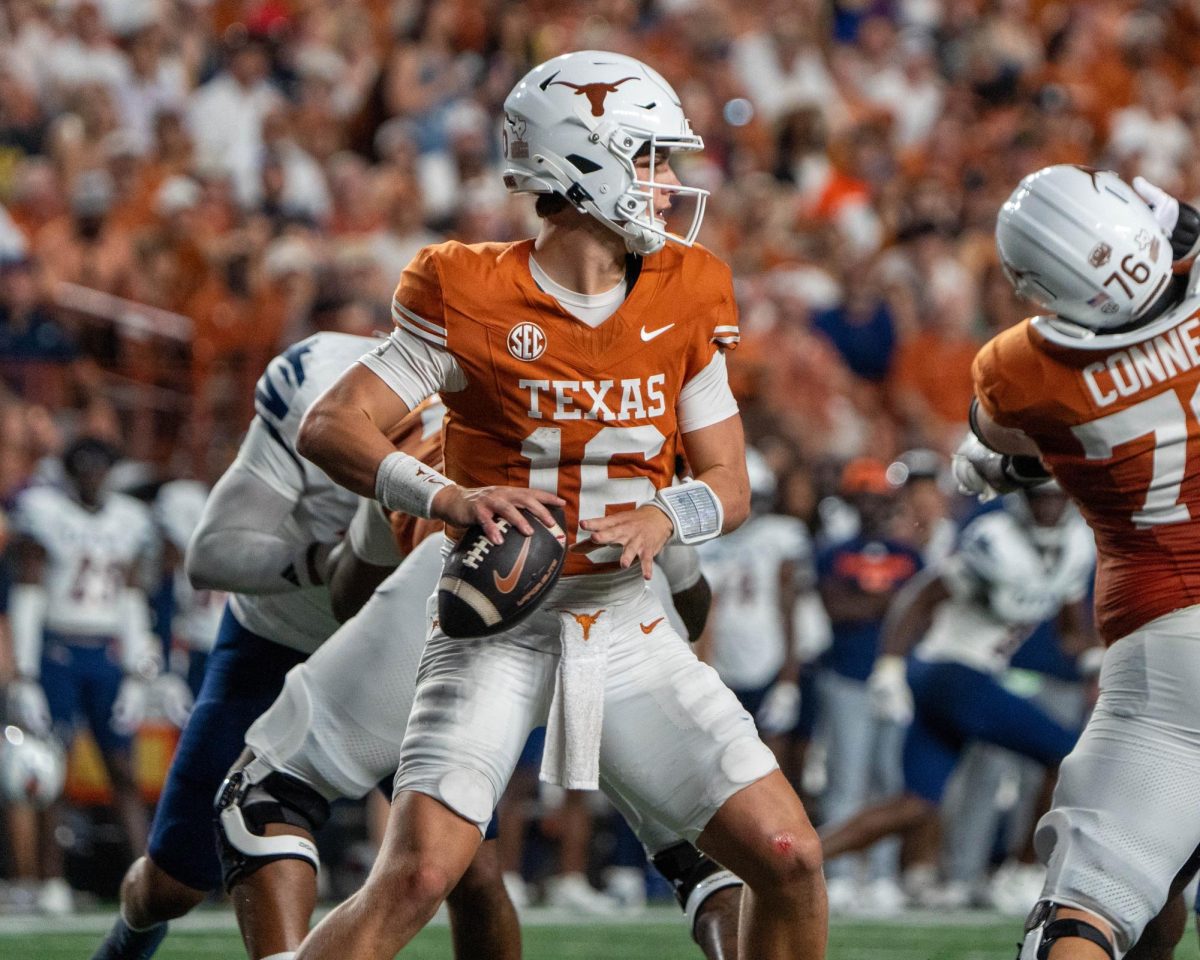When Chis Branson, a longtime Longhorn fan and Air Force veteran, first saw former NFL quarterback Colin Kaepernick sit on the bench during the National Anthem in 2016, he thought it was distasteful. However, his perspective has since changed.
Kaepernick, who sat for the anthem to protest racial injustice, began to kneel after Nate Boyer, a former Texas football player and Army Green Beret, told him it was a more respectful gesture. Kneeling is honorable, Branson said, and he supports those fighting for racial equality who choose to kneel during the anthem.
“We look at why we take a knee in a lot of things — to propose, to pray, to honor a fallen friend,” Branson said. “Here’s another thing, to take a knee when somebody’s injured. And right now, our country is injured.”
Numerous athletes have since taken a knee, sparking controversy. Many fans support Texas student-athletes in their choices to kneel, but other members of the Longhorn community hold different opinions about anthem protests.
One Longhorn fan tweeted that the anthem makes him “think of brothers who fought with me and died for their country.” Another tweeted, “By all means, kneel, just don’t do it when you’re before the flag.”
Donovan Williams, a Texas basketball sophomore guard, tweeted in response to another user that critics of anthem protests “can’t tell people when and how to express their frustration.”
Boyer said he addressed these contrasting ideas with Kaepernick in 2017. He explained to the former quarterback that he champions the fight for equality, but also that the anthem is “a sacred time for a lot of people.”
A similar difference of opinion has occurred at UT regarding “The Eyes of Texas,” the school’s alma mater with minstrelsy roots. Over two-dozen Texas student-athletes released a collective statement on June 12, calling for the University to make many changes including removing the tune as the alma mater , angering many fans and alumni.
UT Interim President Jay Hartzell announced July 13 that several changes would be made to meet other requests, including renaming multiple buildings on campus, but “The Eyes of Texas” would stay. However, he said athletes will no longer be required to sing it and can leave the field before it plays.
While 1983 UT alumnus John Kincade said he believes fans have reclaimed the song as something positive, he wouldn’t take issue with student-athletes who don't sing it.
“I really think that we have redeemed that song and I would love to see all of our students and all of our alumni come together,” Kincade said. “If somebody objects to it, I don’t have a problem with them not singing.”
Junior sprinter Jonathan Jones tweeted, “Speak for yourself. You don’t know how we feel,” in response to a user saying the song is unifying. Junior safety Caden Sterns tweeted that he wouldn’t sing the song, but he’s “understanding on people’s perspectives on what the song means to them.”
1977 UT alumnus Darrell David said he’s always loved singing “The Eyes of Texas,” but was unaware of its history. David said he believes anthem protests will anger many Longhorn fans who grew up with an “Anglo” perception of patriotism like he did. But he understands these perspectives, like the ones surrounding UT’s alma mater, aren’t universally shared.
“When I see a player kneel, what I see is somebody who says, ‘I’m here in America, but I want to make it better,’” David said. “Honestly, should that not be the most patriotic statement … that we want to make this country better for all? And is it not unpatriotic to say, ‘No, I just want to keep it the way it is. I want to keep it the way it is for me?’”





















